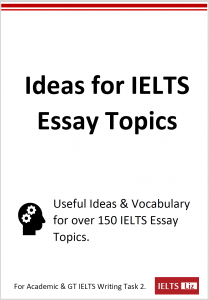Here are some ideas for questions and essays about relocating businesses outside city centers to regional areas. This is a common IELTS topic in writing task 2 and also speaking part 3.
In some countries, the government is encouraging businesses and industries to move outside city centers and relocate to regional areas.
What are the advantages and disadvantages of this trend?
Advantages of businesses being outside urban areas
- Land prices are cheaper and more available in rural areas which is beneficial to businesses. Many overheads will be cheaper.
- Workers in regional areas can be hired for a lower salary.
- Industry and business can often produce pollution so locating them away from residential areas is sensible.
- Raw materials are located in rural areas so it makes sense for many businesses to be situated nearer their required resources.
- Local communities usually support the arrival of new businesses as they bring jobs. This local support can be beneficial for businesses.
Disadvantages of relocating businesses
- The infrastructure is sometimes less developed in rural areas which can be a problem for businesses.
- Internet connection may not be reliable and this can adversely affect companies.
- Workers in rural areas may be plentiful but they might not be as skilled as those in urban centers. A lack of skilled, experienced workers can be a problem for some companies.
- For many companies, their customers are in city centers so moving away from their customer base is not beneficial.
Recommended
Main IELTS Pages
Develop your IELTS skills with tips, model answers, lessons, free videos and more.





